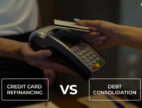ROI Of Hospitality Technology: Maximizing Returns On Investment
by Arnab Dey Business Published on: 17 July 2023 Last Updated on: 25 September 2024

Hoteliers in today’s competitive hospitality business are constantly searching for methods to streamline their operations, improve guest experiences, and increase profitability. One avenue that offers significant potential is investing in hospitality technology solutions.
The rising popularity of hospitality technology solutions is evident from a recent report by Fact. MR. The report predicts that the global smart hospitality market will experience significant growth, with its value projected to rise from US$ 37.41 billion in 2023 to an impressive US$ 273.27 billion by the conclusion of 2033.
By leveraging innovative technologies, hoteliers can maximize their returns on investment (ROI) while delivering exceptional guest services.
In this article, we will explore the key areas where hospitality technology can generate tangible ROI for hoteliers.
Streamlining Operations and Efficiency
Efficient operations are crucial for hotels to deliver seamless guest experiences. Technology solutions like property management systems (PMS), automated inventory management, and integrated booking engines streamline processes, eliminate manual errors, and improve productivity.
Hotel News Resource emphasizes that the choice of a PMS for hotels should consider various factors, including the size, category, and revenue mix of the property. Each hotel is unique, and therefore, the selection of a PMS should be tailored.
For instance, a large convention hotel might require a PMS that specializes in handling intricate group bookings and events. On the other hand, a smaller boutique hotel might prioritize a streamlined and efficient system for managing guest stays.
By investing in such systems, hoteliers can reduce administrative burdens, optimize staff utilization, and enhance overall operational efficiency. These improvements lead to cost savings, increased staff productivity, and, ultimately, a positive impact on the bottom line.
Personalized Guest Experiences
Today’s guests expect personalized experiences tailored to their preferences. According to Allbridge, hospitality technology can help hoteliers gather and analyze guest data to understand individual preferences, enabling targeted marketing campaigns, personalized offers, and customized guest services.
Hotel casting is one of the most effective technologies in the realm of personalized guest experiences. Hotel casting refers to the integration of streaming services, such as Netflix or Hulu, directly into hotel room televisions. This innovative technology allows guests to access their favorite movies, TV shows, and other personalized content during their stay.
By investing in guest relationship management systems, guest feedback platforms, and guest-facing technologies, hoteliers can create memorable experiences that drive guest loyalty, increase repeat bookings, and generate positive word-of-mouth referrals, thereby boosting revenue and ROI.
Revenue Optimization and Upselling
Technology solutions such as revenue management systems (RMS) and dynamic pricing tools empower hoteliers to optimize room rates and maximize revenue. These systems leverage data analytics, market demand trends, and competitor insights to make informed pricing decisions.
According to a survey by Dataintelo, the global market for hotel revenue management software is expected to increase at an annualized growth rate of 9.5% between 2022 and 2030. The need for cloud-based hotel RMS is on the rise, and the hospitality industry is using big data and analytics more frequently, which is responsible for the market’s expansion.
Furthermore, upselling and cross-selling opportunities can be enhanced through in-room tablets, mobile apps, and digital concierge services. By leveraging these technologies, hoteliers can increase average room rates, maximize occupancy, and drive additional revenue streams, leading to a significant ROI.
Enhanced Marketing and Online Presence
In the digital age, a strong online presence is crucial for hoteliers to attract and engage potential guests.
Investing in digital marketing tools, search engine optimization (SEO) strategies, and social media management platforms can boost online visibility, drive direct bookings, and reduce reliance on costly third-party channels. By improving their online marketing efforts, hoteliers can increase brand awareness, target specific customer segments, and achieve higher conversion rates, resulting in a positive ROI.
Cost Savings through Energy Management
Hospitality technology can help hoteliers achieve significant cost savings by optimizing energy consumption. Smart energy management systems, including automated lighting controls, occupancy sensors, and intelligent climate control, can reduce energy waste and lower utility expenses.
Additionally, investing in smart building management solutions enables proactive monitoring and maintenance, preventing costly equipment failures and reducing operational downtime, further contributing to cost savings and improved ROI.
Data Security and Compliance
In an era where data breaches pose significant risks, hoteliers must prioritize data security and compliance. Investing in robust cybersecurity measures, including secure payment gateways, encrypted guest data storage, and employee training programs, can protect sensitive information and prevent reputational damage.
By safeguarding guest data and maintaining compliance with relevant regulations, hoteliers can build trust and enhance brand reputation. This also helps avoid costly legal consequences, ultimately protecting their ROI.
Key Takeaways
Investing in hospitality technology solutions enables hoteliers to enhance operational efficiency, deliver personalized guest experiences, optimize revenue, improve online visibility, achieve cost savings, and ensure data security. By leveraging technology effectively, hoteliers can streamline processes, increase productivity, and reduce manual errors.
Personalization drives guest loyalty and referrals, while revenue optimization tools and digital marketing strategies maximize revenue streams. Energy management systems contribute to cost savings, and robust data security measures protect the hotel’s reputation.
Embracing technology is essential for hoteliers to stay competitive, meet evolving guest expectations, and achieve long-term success in the dynamic hospitality industry.
Read Also:







































































































